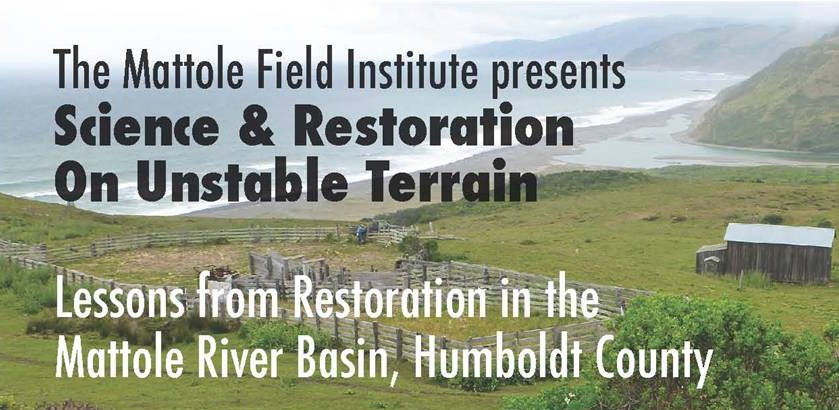19-24 June 2017, Petrolia, California
The Mattole River flows through an exceptionally dynamic landscape on Humboldt County’s Lost Coast. Salmon historically thrived here despite periodic disturbances from earthquakes and intense storms, but massive clear-cutting in the mid-20th century set the stage for widespread loss of habitat resulting from accelerated erosion, excessive suspended fine sediment loads, channel siltation and aggradation. The river and its basin have been naturally recovering since, encouraged by habitat restoration projects. The Mattole is an excellent setting in which to observe interactions among physical, ecological and social systems, with a strong data set from extensive citizen monitoring. This 5-day field course explores the scientific and practical challenges of stream restoration in this unstable terrain. Daily lectures, discussion, and field tours to field sites (including restoration projects) cover a range of topics from geomorphology, salmonid habitat restoration, in-stream flow enhancement, Mediterranean rivers ecology, and more.
The course is taught by experts with experience ranging from the local to regional to global: Matt Kondolf (UC Berkeley), Danny Hagans (Pacific Watershed Associates), Alison Purcell O’Dowd (Humboldt State U), Tommy Williams (NOAA Fisheries), Tasha McKee (Sanctuary Forest), Sam Flanagan (BLM), Drew Barber (Mattole Salmon Group, MSG), John Williams (Mattole Restoration Council, MRC), and Nathan Queener (MSG and MRC). The fee for the five-day course (including lodging along the banks of the lower Mattole and a BBQ of locally-caught salmon) is $1000 ($500 students).
For more information, see the course website or contact cassie-at-mattole.org.
